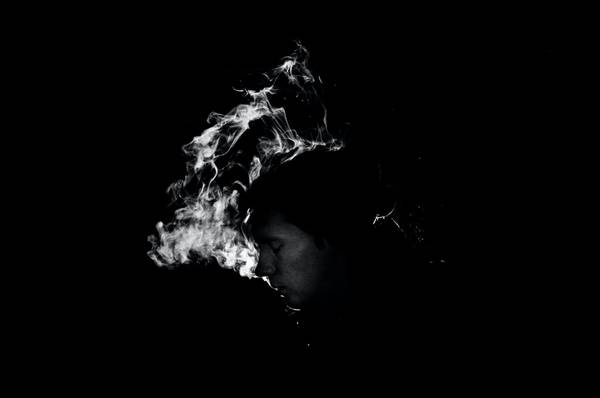![Healthy Matters]() Pharmacist Tips | Dosages | Side effects
Pharmacist Tips | Dosages | Side effects![Healthy Matters]() Nutritionist Tips | Facts | Precautions
Nutritionist Tips | Facts | Precautions![Healthy Matters]() Practitioner Tips | Dosages | Side effects
Practitioner Tips | Dosages | Side effects![Healthy Matters]()
![Healthy Matters]()

Lung Cancer in Hong Kong: From Causes to Treatment
5 min read

Lung cancer has been the leading cause of cancer deaths in Hong Kong since the HK Cancer Registry was established in 1983. Its high mortality rate is largely due to the fact that most patients do not have visible symptoms at an early stage of the disease. Lung cancer is the first and third most common cancer in men and women in Hong Kong respectively, among breast cancer and colorectal cancer.
In 2019, 15.9% of new cancer cases were lung cancers, and the number could rise by 40% by 2030. Lung cancer killed 4,033 people in Hong Kong in 2019: it is almost a third of all cancer deaths.
What is Lung Cancer?
Lung cancer is abnormal cell growth in one or both lungs and it usually starts in the lining of an airway, i.e. the trachea (windpipe that transports air into the lungs) and bronchi (air passages connecting trachea and smaller tubes in the lungs). Therefore, the functioning of the lungs could deteriorate. Lung cancer is more common in men, especially those above 40 years old.
There are two types: small-cell lung cancer (SCLC) and non-small cell lung cancer (NSCLC). They require different treatment. The most common type is non-small cell lung cancer (NSCLC), accounting for approximately 80% of all lung cancers. Small-cell lung cancers are closely related to smoking cigarettes. They usually spread very quickly.
Signs and Symptoms
Early lung cancer has no obvious symptoms, so most people fail to receive timely medical attention. As lung cancer grows, some common symptoms include:
- A cough that gets worse or doesn’t go away
- Blood traces in sputum coughed up from the lungs
- Constant chest pain worsens as you cough or breathe deeply
- Weight loss and loss of appetite
- Shortness of breath
- Feeling very tired all the time
Symptoms of more advanced lung cancer include:
- Swelling in the neck, face and hands or lymph nodes
- Pain in the bones
- Constant headache
- Partial epilepsy or paralysis of one side of the body
- Abdominal distension
Causes of Lung Cancer
- Smoking: It is the main cause. It is estimated that 1 in 10 smokers could develop lung cancer and their risk is 20 times higher than non-smokers.
- Passive smoking: People who do not smoke are about 30% more likely to get lung cancer if exposed to secondhand smoke. Research shows that nearly 20% of children with lung cancer are related to family member(s) smoking.
- Exposures to chemicals: For instance asbestos, nickel, uranium and radon gas.
- Air pollution: The International Agency for Research on Cancer classifies outdoor air pollution and related particulate matters as carcinogenic to humans (Group 1 carcinogens).
- Gene changes: Gene mutation makes up to about 50% of lung cancer causes in Asian patients. However, most common gene mutations in lung cancers are spontaneous mutations and thus are usually not inheritable or passed on in the germline to offspring.

Prevention of Lung Cancer
The best protection is early detection and prevention. There are some ways to lower your risk, for example:
- Avoid/quit smoking
- Avoid secondhand smoke
- Avoid beta carotene supplements if you are a heavy smoker
- Timely and regular screening
Screening and Diagnosis
In case you notice any of the above-mentioned symptoms, the following are tests that may be recommended by your physician:
- Imaging tests: Chest X-ray is done to identify traces of lung cancer i.e. abnormal mass or nodule. Additionally, a CT scan may also be recommended in case an X-ray fails to locate.
- Sputum cytology: Sputum is examined under the microscope if one reports coughing and having sputum.
- Low-dose computed tomography: A low dose of radiation is used to project detailed images of the lungs.
- Tissue sample (biopsy): A sample of abnormal cells may be removed from the affected site for further investigations.
The two different types of lung cancers have different stages of development.
- Small-cell lung cancer: It commonly spreads early in the middle of the lungs, making it difficult to be identified at an early stage. Over 10% of the lung cancers reported are small cell lung cancer cases.
- Limited stage – Cancer cells are only available at one side of the chest.
- Extensive stage – Traces (or cells) of cancer spread to the opposite side of the body.
- Non-small cell lung cancer: It affects cells that line the tubes into the lungs. It is possible to remove non-small-cell lung cancer through surgery.
- Stage 1 – The tumor is only in a single lung and does not reach any lymph nodes or distant organs.
- Stage 2 – When cancer cells spread to the lymph nodes inside the lung, but the distant organs are still safe.
- Stage 3 – When cancer cells spread to lymph nodes at the center of the chest but not the distant organs.
- Stage 4 – When cancer cells are spread throughout the body.
Treatment
While most lung cancers are treatable, a significant proportion present at a late stage and thus are not curable. Treatment options include:
- Surgery: Surgery is only helpful for non-small lung cancer cells (NSCLC). It is performed when the tumor is located away from the center of the chest.
- Radiotherapy: There are two types of radiotherapy, i.e. external and internal. High-energy rays are used on to destroy the cancer cells. These rays are less harmful to normal cells. Radiotherapy may be used as a stand along before or after surgery for lung cancer.
- Chemotherapy: Drugs are used to disrupt cancer cell growth. Chemotherapy for lung cancer may be advised with radiotherapy, for better and effective results.
- Airway Stents: Cancer cells obstruct breathing. Airway stents are used as they allow the airways to pass the air from the windpipe into the lungs.
- Targeted Therapy: Researchers have developed drugs to specifically target the growth of cells in non-small cell lung cancer (NSCLC). Targeted drugs work differently from chemotherapy drugs and often have less severe side effects. These drugs are often used for advanced lung cancers, together with chemo or alone.
- Immunotherapy: It is the use of medicines to stimulate a patient’s own immune system, in order to recognize and destroy cancer cells. It can be used as a treatment for some types of non-small cell lung cancer (NSCLC).
What is the cost of lung cancer treatment in Hong Kong?
Cost of treatment in Hong Kong’s Public Sector:
For eligible persons with an HKID card, the cost is $75 admission fee and $120 per day, covering surgery fee, chemotherapy fee, and radiotherapy fee. Extra medications or other injections needed are not included.
For non-eligible persons without an HKID card, the cost for inpatient general hospital is $5,100 per day.
Beware of waiting times which can be very long in the public sector.
For details, call the Hospital Authority at 2300 6555.
Cost of treatment in Hong Kong’s Private Sector:
The cost of treatment in the private sector would be determined according to the condition of the patient. Different types and stages of the disease require different surgical procedures therefore it is best to consult a doctor and discuss the options that best suit your situation.
In Hong Kong, fees are also determined according to the choice of room (private, semi-private, ward), doctor fees, medication fees, and administration fees of each hospital or clinic, therefore it may vary significantly.
A consultation in the private sector ranges from $800 to $2000 and a cycle of chemotherapy in Hong Kong’s private sector can range from $12,000 to $25,000. The fee for radiation therapy can range from $30,000 to $150,000 but depends highly on the number of doses assigned by your doctor. These are estimates, for your information only.
* All amounts are in HKD. No responsibility is accepted for any inaccuracies, errors or omissions. It is always best to call ahead to make sure the information is still up-to-date.
Does insurance usually cover Lung Cancer treatment costs in Hong Kong?
According to Alea, lung cancer surgery is usually reimbursed under hospital/surgical benefits whereas chemotherapy/radiation therapies are usually reimbursed under cancer cover. Generally, high-end medical plans will reimburse cancer treatments in full without any sub-limit whereas local plans will have sub-limits. If you have health insurance questions, contact an expert at Alea at +852 2606 2668 or [email protected].
Useful resources in Hong Kong
- Hong Kong Cancer Fund
- Hong Kong Anti-Cancer Society
- Hong Kong Center for Health Protection
- Tobacco and Alcohol Control Office
Medical-related content only was reviewed by Dr. Patricia Poon. She graduated from the University of Adelaide, South Australia in 1995. She subsequently received her Oncology training at the Queen Elizabeth Hospital in Hong Kong and became a fellow of the Royal College of Radiologists in 2002. Dr. Poon earned the Fellowship of Hong Kong College Radiologists and Fellowship of the Hong Kong Academy of Medicine (Radiology) in 2005. She also obtained a Master's degree in Palliative Medicine at Cardiff University, U.K. in 2010. Besides training at the Queen Elizabeth Hospital in Hong Kong, she was a Consultant Oncologist at the Hong Kong Baptist Hospital until 2014. She is currently working as a private Clinical Oncologist in Hong Kong.
This article was independently written by Healthy Matters. It is informative only and not intended to be a substitute for professional medical advice, diagnosis or treatment. It should not be relied upon for specific medical advice.

Your health resource, made in Hong Kong
Healthy Matters is Hong Kong’s leading health resource. Our mission is to help you make better health decisions and take control of your health.
Our team of experts is committed to producing reliable health content that is accurate, engaging and relevant, to cover your health & wellness journey from prevention to treatment.
Whether you are looking for trusted information on health conditions, wellbeing or looking for the right doctor or service in Hong Kong, we’re here to help!
Your health matters. Begin your health journey with Healthy Matters today!

































